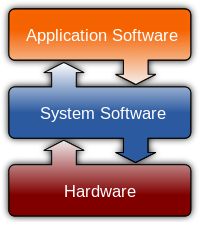In this morning's lecture, I mentioned that recent work on the sustainability of computing had recently measured the power consumption of contemporary programming languages on a series of benchmarks.
The paper is titled: Ranking programming languages by energy efficiency
https://www.sciencedirect.com/science/article/abs/pii/S0167642321000022?via%3Dihub
The full paper is behind a paywall, but you should be able to access using campus networks.
Abstract:
"This paper compares a large set of programming languages regarding their efficiency, including from an energetic point-of-view. Indeed, we seek to establish and analyze different rankings for programming languages based on their energy efficiency. The goal of being able to rank programming languages based on their energy efficiency is both recent, and certainly deserves further studies.
We have taken rigorous and strict solutions to 10 well defined programming problems, expressed in (up to) 27 programming languages, from the well known Computer Language Benchmark Game repository. This repository aims to compare programming languages based on a strict set of implementation rules and configurations for each benchmarking problem. We have also built a framework to automatically, and systematically, run, measure and compare the energy, time, and memory efficiency of such solutions. Ultimately, it is based on such comparisons that we propose a series of efficiency rankings, based on single and multiple criteria.
Our results show interesting findings, such as how slower/faster languages can consume less/more energy, and how memory usage influences energy consumption. We also present a simple way to use our results to provide software engineers and practitioners support in deciding which language to use when energy efficiency is a concern."


